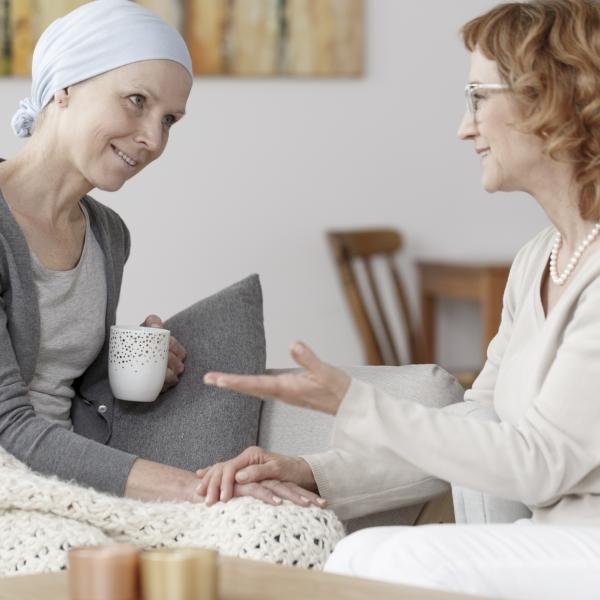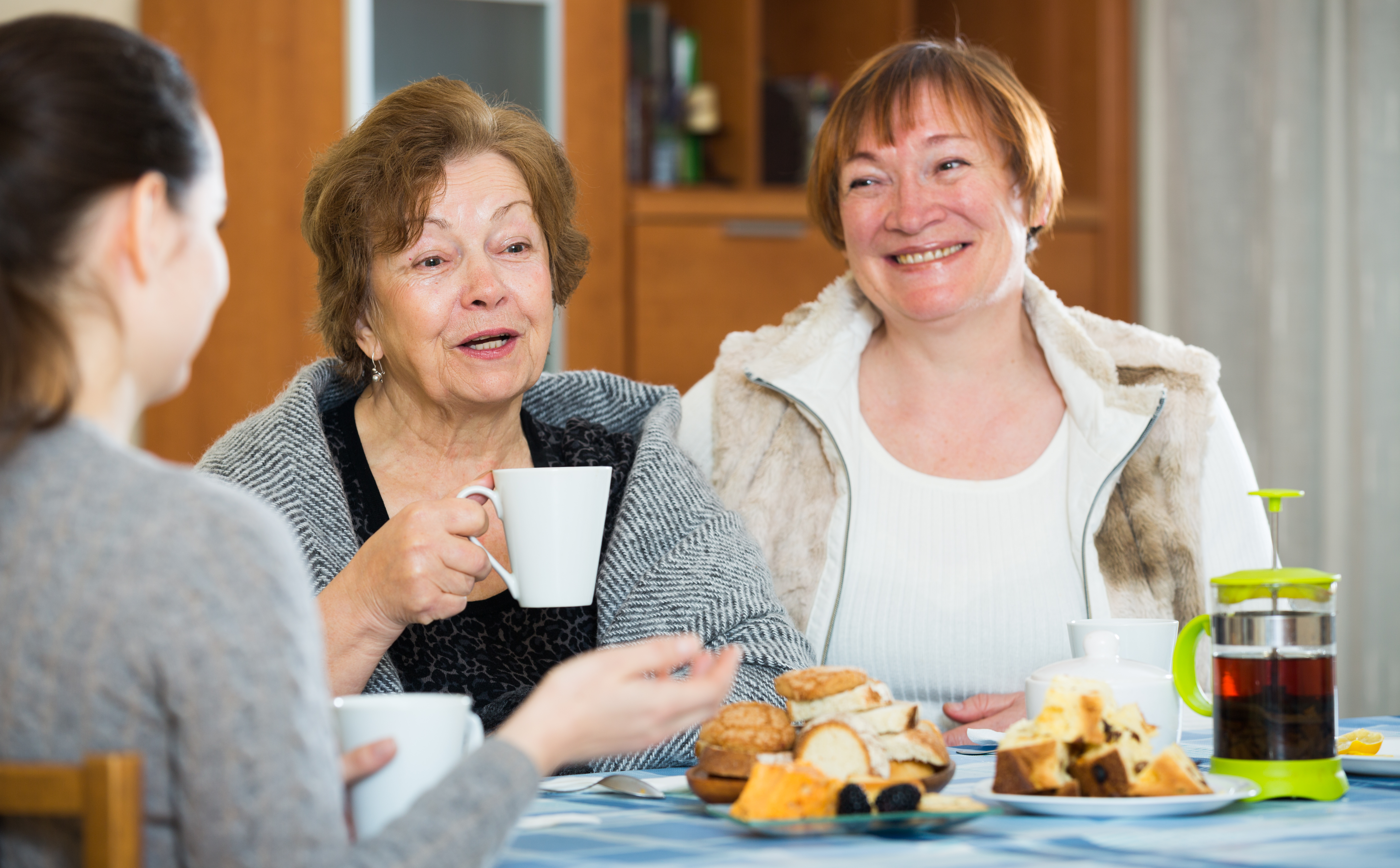Giving emotional care
Listening to your loved one
Knowing how a friend or loved one is feeling and what you can say or do to help is often difficult. You can't change the fact that they are sick, but you can help them a lot just by listening.
Listening is about focusing on what your loved one is saying, not thinking about what you are going to say next or waiting to offer advice or give an answer.
Hints and tips: How to listen
- Sit down together in a private place.
- Make sure you have plenty of time. Let your loved one know you are there for as long as needed.
- Put your phone on silent.
- Maintain as much eye contact as possible.
- Ask 'open' questions. For example, ‘How are you feeling today?’ Closed questions normally only require a yes or no answer and don't encourage the other person to talk.
- Focus on what your loved one is saying. Try not to think about something else or what you plan to say next.
- Don't interrupt or change the subject. If your loved one stops talking, remember they might be thinking about what they want to say next. Give them time to do that.
- Allow the patient to be sad or upset and tell them that it’s ok to feel that way. It might make you feel uncomfortable to see them upset, but you are helping by being there and listening.
- Try not to say things like, ‘It will be ok’ or ‘Stay positive’. This might stop them from telling you how they really feel.
- Make sure you have understood what your loved one has said. A good way to do this is repeat some of the words they have used.
- Follow their lead. If they laugh, it’s ok to laugh with them. If they cry, give them time to do this too. If they look uncomfortable, nod and smile and show them you are there to listen.

Reactions to a cancer diagnosis
You may be surprised at how your loved one reacts to their cancer diagnosis. It's normal for people to cope in many different ways. Sadness, anger, anxiety and denial are all common reactions.
Different feelings at different times
It's normal for your loved one to experience different feelings during the course of their illness. It can be hard for you as a carer because you don't know what to expect.
The following stages may be very challenging for your loved one:
- After diagnosis
- Waiting for test results
- Before a follow-up appointment
- When treatment is finished
- If the cancer returns after treatment
- If the treatment has not worked
As a carer your main role is to support your family member or loved one, not to change how they feel. Listening and trying to accept how they feel will show that you really support them.
Everyone deals with cancer in a different way. As a carer you will also have your own reactions. For more on this, read more about taking care of yourself as a carer.
Talking to your loved one
Sometimes, as a friend or carer, you may feel stuck and helpless and maybe lost for words. There is no 'right thing’ to say. However, you can provide relief to the sick person by encouraging them to talk and letting them lead a conversation about their illness or their feelings. That way, talking about it will become easier.
For more information, download our booklet Caring for someone with cancer, which has a section on how to talk to someone with cancer. You can also order it through our Support Line on 1800 200 700 or pick up a copy at your local Daffodil Centre.
What not to say
Cancer survivor Cian talks about how to talk to someone with a cancer diagnosis, or specifically, what *not* to say to someone with cancer.
Getting support for your loved one
There's a lot of support available for cancer patients. This includes cancer support centres, support groups for different types of cancers, counsellors, booklets and online forums. See also Irish Cancer Society services.
You can help your loved one by finding out what's available in your area. Some hospitals have a Daffodil Centre where you can speak to a cancer nurse.

Psycho-oncology services. If you are worried that your loved one isn't coping well with their illness, speak to their doctors, nurses or medical social worker. Some hospitals have a psycho-oncology service. This is a team of nurses and doctors, psychologists and social workers who specialise in helping cancer patients who feel unable to cope, despite their best efforts.
Keeping life as normal as possible
Cancer will have a big impact on your loved one’s life, but try not to let it take over. They are still the same person.
Try to keep living as normally as possible. Remember to include your loved one in special activities like birthday celebrations or other events and outings. Everyone needs something to look forward to and it can be a welcome break from thinking about their illness.
Complementary therapies
Some patients find that complementary therapies such as massage, exercise-based activities, mindfulness and yoga help them to feel better in themselves during and after treatment. Check with the hospital before using a complementary therapy to make sure it is safe to use with your treatment.
For more information, order or download our booklet Understanding Cancer and Complementary Therapies. You can also order it through our Support Line on 1800 200 700 or pick up a copy at your local Daffodil Centre.
Caring for a child with cancer
Sometimes being a carer means looking after children affected by cancer. For more information, see our section on children and cancer.
We also have booklets for parents such as Children and Young People with Cancer: A Guide for Parents. This can be downloaded or ordered from our Support Line by calling 1800 200 700 or emailing supportline@irishcancer.ie



For more information
Phone
1800 200 700




